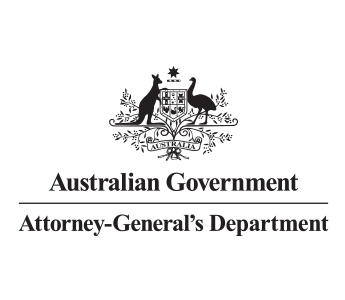Connect with the counter-fraud community
Collaboration is key to breaking down silos, creating new learning opportunities and helping us all share better practices and information. We are stronger together and should take advantage of the vast amount of knowledge available across our community.
Information sharing is also critical for preventing and detecting fraud, and should form part of your counter fraud strategy. There are a number of methods and resources available to help you share information. Learn more on the Use Data to Counter Fraud page.
Communities of practice
The Centre has launched 2 communities of practice, designed to support collaboration and knowledge sharing among Australian Government officials working in fraud and corruption:
- Fraud and Corruption Control Testing Community of Practice
- Fraud Loss Measurement (FLM) Community of Practice.
These communities of practice bring together EL1 and EL2 counter-fraud and risk professionals to explore key topics, share practical insights, and strengthen our collective capability in fraud and corruption control testing and fraud loss measurement.
About the communities
The Fraud and Corruption Control Testing Community of Practice is focused on building leading-edge control testing capability. Members will share lessons, experiences, and best practice approaches to help improve control testing across the Australian Government.
The FLM Community of Practice is focused on driving the development of FLM capability across the Australian Government. It brings together officials undertaking FLM exercises to share practices, statistical and analytical techniques and learnings, to further develop and strengthen their capability and drive consistent application of FLM.
How to join
If you are a Commonwealth official interested in registering for either community of practice, complete our registration form:
For any questions, contact us at info@counterfraud.gov.au.
Commonwealth counter-fraud contact list
The following is a list of counter-fraud contacts for Commonwealth entities. Contact us to be added to the list.
Different entities involved in counter fraud
Attorney-General's Department
The Attorney-General's Department (AGD) advises government about fraud and corruption control arrangements within the Commonwealth. Its role includes uplifting fraud and corruption control capability and supporting Commonwealth entities to meet obligations under the Commonwealth Fraud and Corruption Control Framework.
Commonwealth Director of Public Prosecutions
The Commonwealth Director of Public Prosecutions is responsible for prosecuting offences against Commonwealth law.
Australian National Audit Office
The Australian National Audit Office conducts performance audits of Commonwealth entities. This may include entities’ fraud and corruption control arrangements.
Australian Institute of Criminology
The Australian Institute of Criminology is Australia’s national research and knowledge centre on crime and justice. It compiles trend data and publishes research and policy advice. It also informs crime and justice policy and practice in Australia by undertaking, funding and publishing relevant research of national significance. It does this by creating a crime and justice evidence base and by establishing a national knowledge centre. The AIC is responsible for conducting an annual fraud survey and reporting on fraud against the Commonwealth.
Australian Commission for Law Enforcement Integrity
The Australian Commission for Law Enforcement Integrity supports the Integrity Commissioner to detect and prevent corrupt conduct, and to investigate corruption issues (including cases involving internal fraud) in prescribed Commonwealth entities with law enforcement functions.
Australian Competition and Consumer Commission
The Australian Competition and Consumer Commission (ACCC) is responsible for enforcing compliance with Australia's competition laws, which contain criminal and civil prohibitions on fraud in the form of cartel conduct. Cartel conduct occurs when competitors conspire to fix or control prices, rig bids, restrict supply or allocate markets. The ACCC is committed to providing procurement officers within entities with the knowledge and tools needed to detect and report possible collusion by suppliers. The ACCC also runs Scamwatch to help consumers and businesses recognise, avoid and report scams.
Australian Security and Investments Commission
The Australian Securities and Investments Commission (ASIC) regulates Australian companies, financial markets, and financial services organisations and professionals who deal with and advise on investments, superannuation, insurance, deposit taking and credit under a number of Commonwealth laws. ASIC uses enforcement powers to detect and deal with unlawful conduct and responds to breaches of law ranging from minor regulatory offences through to serious misconduct. Entities can contact ASIC where fraud matters involve any of the above conduct.
State and territory police
State and territory police can investigate alleged criminal activity relating to Commonwealth government programs within their jurisdiction (for example, theft). They can also investigate matters involving fraud against individuals and/or private businesses.

